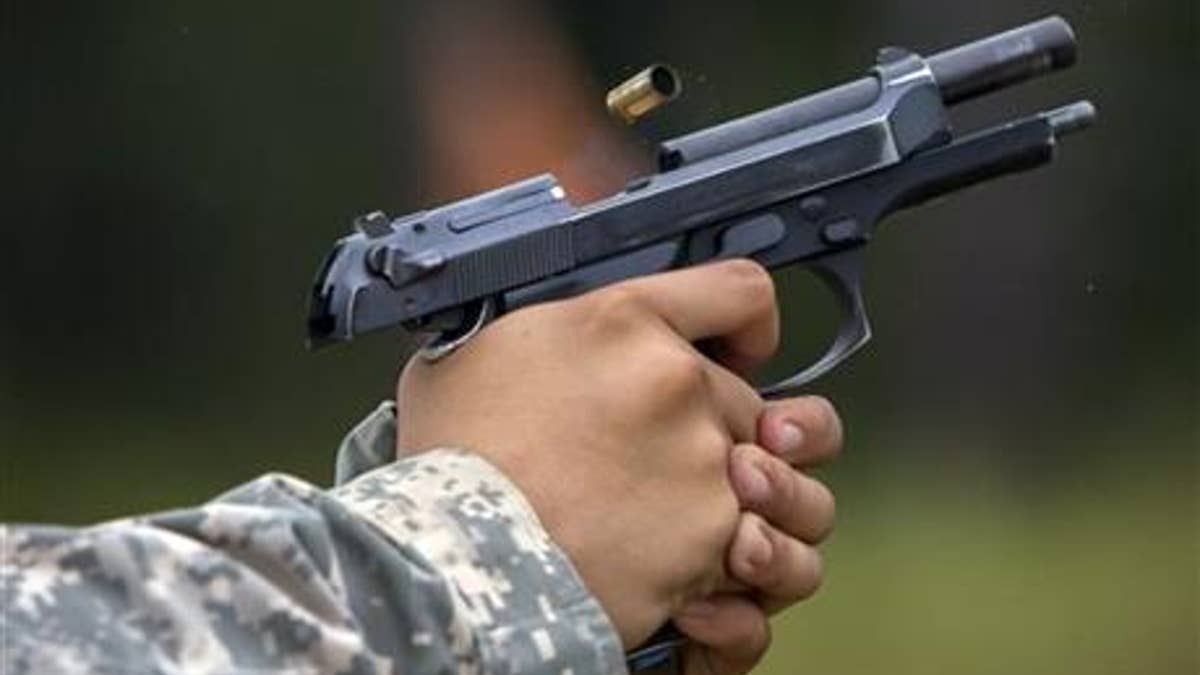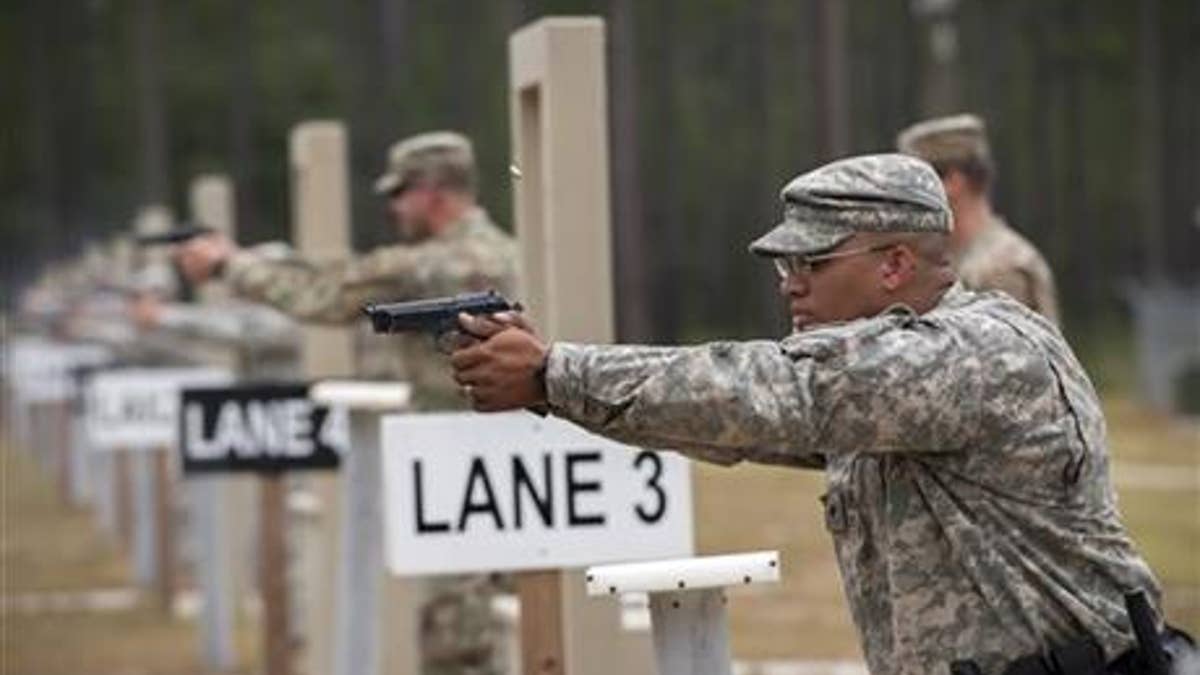
A 9mm case is ejected from the chamber of a Beretta M9 during a qualifying exercise for the 139th Military Police Company, Tuesday, Sept. 29, 2015, in Fort Stewart, Ga. The Army wants to replace its M9, a 9mm semi-automatic handgun adopted during the Cold War.
When it comes to handguns, the U.S. Army wants the weapon of its choice, not whatever pistol the Pentagon's Byzantine procurement process draws.
The Pentagon is currently mulling over a host of proposals to replace the M9 9mm sidearms soldiers have carried since 1985 - when those guns replaced the venerable Colt 1911s that had been fixtures for decades. Army Chief of Staff Gen. Mark Milley opened fire on the process at the Future of War Conference, saying he has asked Congress to grant service chiefs the authority to make the call.
"We are not exactly redesigning how to go to the moon, right?" Milley said at the conference according to Military.com. "This is a pistol. ... And arguably, it is the least lethal and important weapon system in the Department of Defense inventory."
“I used the M9 when I was in Iraq and was not a fan at all…i found it hard to use. It felt cheap.”
Milley did not say what his preference is, but soldiers are understanably picky about their firearms. And even though the handgun is often a last resort in combat, feelings run strong about them. And skepticism about a procurement process that must ultimately go through Congress is equally deep.
"Anything that Congress comes up with might not be the best choice,” Erik Shaw, an Iraq War Army veteran and firearms expert, told FoxNews.com. “They might make the best decision when it comes to cost, but not when it comes to what’s best for on the battlefield."
Last August, the Pentagon launched its "XM17 MHS competition," in which gun manufacturers had the opportunity to present their best pistols for consideration to replace the current standard sidearm, which critics say does not have adequate stopping power.
Milley said at the conference that the program is an example of a bureaucratic system that makes it overly complicated to get field equipment to soldiers on the frontlines in a timely matter.
"We are trying to figure out a way to speed up the acquisition system," Milley said. "Some of these systems take multiple years, some of them decades to develop."
Milley also pointed out many issues and concerns with the MHS, particularly the $17 million price tag.
"[A] 367-page requirement document. Why?" Milley asked the crowd. "Well, a lawyer says this, and a lawyer says that, and you have to go through this process and that process and you have to have oversight from this that and the other."
"The testing -- I got a briefing the other day -- the testing for this pistol is two years," he added. "Two years to test technology that we know exists. You give me $17 million on the credit card, I'll call Cabela’s tonight, and I'll outfit every soldier, sailor, airman, and Marine with a pistol and I'll get a discount on it for bulk buys."
Current plans call for the Army to purchase nearly 300,000 full-size handguns and 7,000 compact versions. The other military services participating in the MHS program may order an additional 212,000 systems above the Army quantity.
The program is set to cost at least $350 million and potentially millions more if it results in the selection of a more potent pistol caliber, according to Military.com.

Members of the 139th Military Police Company train with their Beretta M9 at a range in Fort Stewart, Ga. (AP)
Shaw said soldiers don't like the M9 and would much prefer some type of .45 cliber handgun.
“If I had to pick, I would lean towards a Glock 17 or 19 or their .45 model," he said. "They are easy to maintain and you can beat the hell out of them.”
Shaw also says that another replacement for the M9 would be the one that it originally replaced.
“The 1911," he said. "The .45 caliber is a much better weapon now.”









































